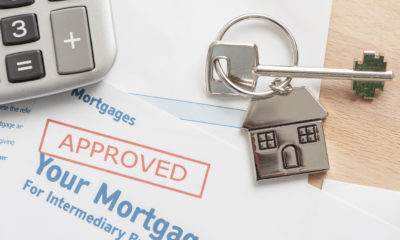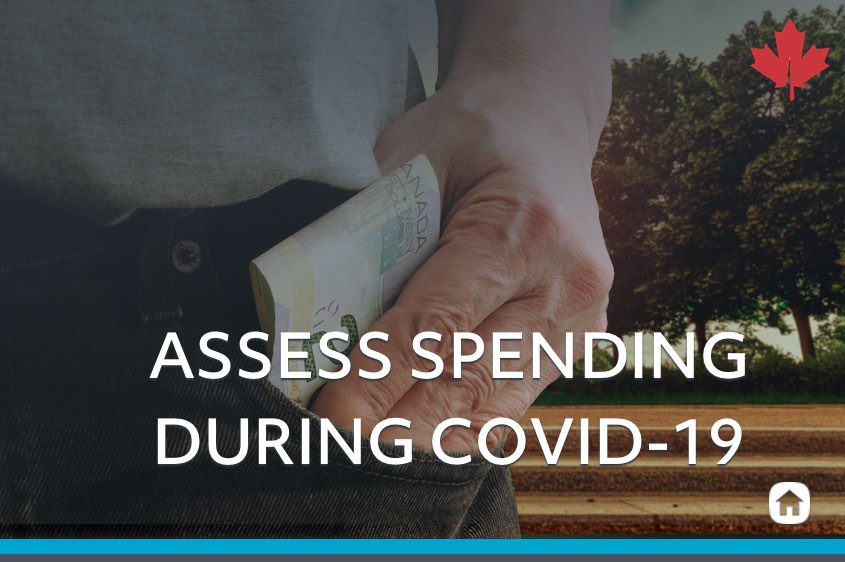If there’s one thing we all have to do during COVID-19, it’s reassess our spending. This is the case for anyone – whether you’ve lost your job or not.
No matter what happens, life is going to be different post-coronavirus, and the more prepared you are, the better off you’ll be.
Use this time that we are in quarantine to assess your current spending and get truly honest with yourself. It’s time to take a close look at everything, create a new budget, and cut out the fat, so to speak. You have no way to know what the future holds.
Will you have a job or won’t you? Will your investments tank and recover or have you lost it all for good?
Assessing
your spending now will set you up for the future. Check out the steps to do so
below.
How to Start
The task seems overwhelming, but it’s not if you take it one step at a time.
Start by pulling out your bank statements from the last few months. This will give you a good idea of what you spend each month. Break the spending down into categories so that you can see exactly where you spend the most. Once you have your expenses sorted, it’s time to make changes including:
Eliminate
Unnecessary Spending
This is perhaps the most important step in the entire process. It’s time to get honest with yourself. What do you really need to spend?
Put your focus on the essentials – your shelter, transportation, and food. Those expenses you have to figure out a way to pay. Anything outside of those expenses may be trimmed or even eliminated altogether.
Start with
the expenses you know aren’t necessary at all. Think of things like:
- Magazine subscriptions
- Other subscriptions
- Non-essential shopping
- Salon appointments
- Coffee shop stops
- Eating out
Look for
expenses that aren’t essential to your daily living. Yes, they may be things
you enjoy and/or want, but for now, they aren’t necessary and may not have a
place in your budget.
Make sure
when you go through your accounts that you look at both your bank account and
your credit card statements. All too often we sign up for ‘free trial subscriptions’
but then forget to cancel them and pay the fees unknowingly because they’re
automatically charged to our credit card.
As you cut your expenses, though, think about others as you trim the fat. For example, if your children belong to a dance studio or martial arts studio and you can afford the expense keep it.
The same is true of small (non-franchised gyms). Without the support of their previous clients, small businesses such as these may no longer be in existence post-COVID-19. While you need to trim out the fat, these expenses are likely ones that served your family well before the crisis and will likely do so afterwards, if they are allowed the chance.
Create a
Worst-Case Scenario Budget
Now it’s
time to plan for the worst-case scenario. In other words, a bare-bones budget
or a budget you can stick to even in the worst of times. It should cover only
the necessities – the things you can’t live without.
A simple way
to make your barebones budget is as follows:
- List your most important expenses (mortgage,
utilities, internet, food, transportation, and health insurance)
- Cut all other expenses, such as entertainment,
dining out, shopping, etc.
One other area
to consider is savings. If you’re currently employed but just cutting back,
consider still contributing to your retirement account. If you’re unemployed,
you may want to cut back on everything non-essential for the moment, but make
sure you get back to contributing to your retirement as fast as you can. Not
only do you not contribute to your retirement account, but you lose the chance
of compounding the interest, which is almost like a double loss to your
retirement income.
Think About
Refinancing or Debt Consolidation
If you are still employed, now would be a great time to think about refinancing and/or debt consolidation. Take stock of where you stand financially right now. Could you get a lower interest rate on your mortgage and save money? Do you have equity in your home and could use it to consolidate your consumer debt?
If you’re
still employed, this is the time to refinance or take out a loan to consolidate
your debt. Remember, if you wrap your consumer debt into your mortgage, you put
your home up as collateral, so make the choice wisely. At the very least, you
can apply for a 0% APR balance transfer credit card and corral all of your
credit cards into one with no interest and/or a lower payment.
Keep Saving
While we are
in crisis, it’s a great time to keep saving if you can. We have no idea how long
this is going to go on or what’s going to happen to the economy. If you don’t
have six months of expenses saved, you need to keep saving. At this point, we
should all be looking at saving at least 12 months of expenses. This helps you
not only if you lose your job, but also if you have an unexpected emergency on
top of the job loss, as that could spell complete financial destruction.
Use this
time in quarantine to reassess your financial life as it is right now. Whether
you are employed or unemployed, it’s time to take precautions. This entire
scenario was thrown upon us and most of us weren’t ready. Whether you live
paycheck-to-paycheck or you are somewhat prepared, but still feel uneasy about
the future, assessing your current spending now will help set you up for
whatever the future brings as we navigate our way through COVID-19 and beyond

 Buying a Home5 years ago
Buying a Home5 years ago
 Credit6 years ago
Credit6 years ago
 5 Mortgage Secrets6 years ago
5 Mortgage Secrets6 years ago
 Business4 years ago
Business4 years ago
 Buying a Home6 years ago
Buying a Home6 years ago
 5 Mortgage Secrets6 years ago
5 Mortgage Secrets6 years ago
 Business4 years ago
Business4 years ago
 Buying a Home6 years ago
Buying a Home6 years ago






